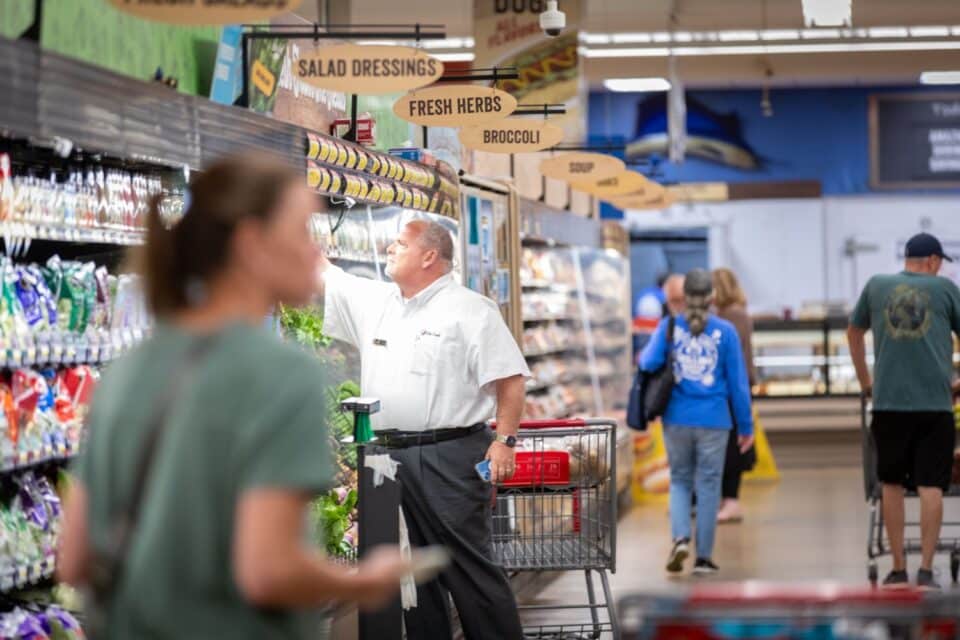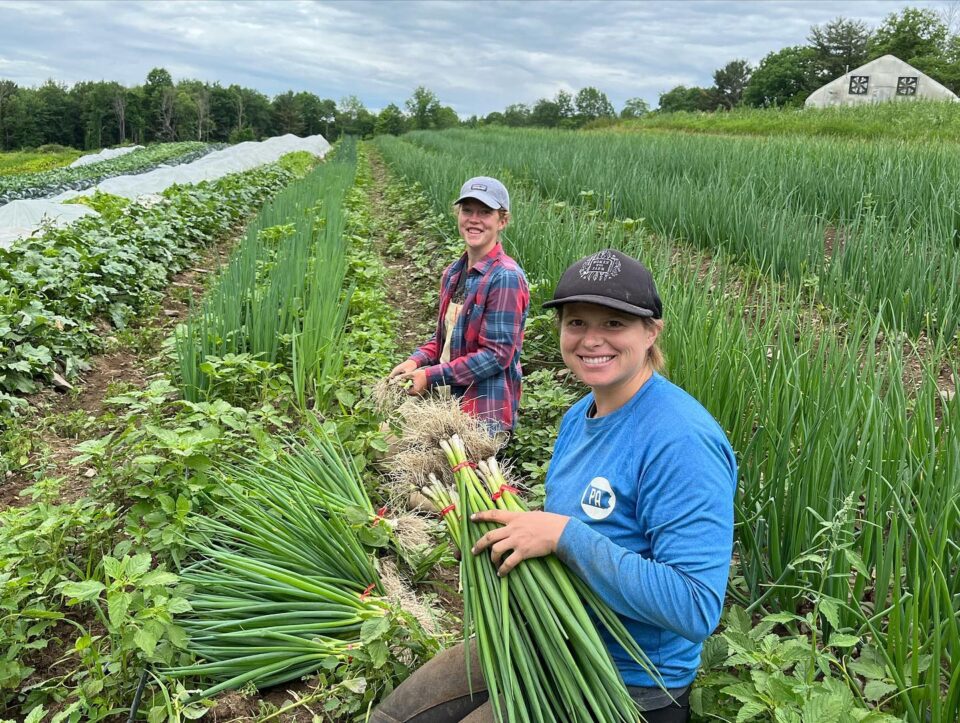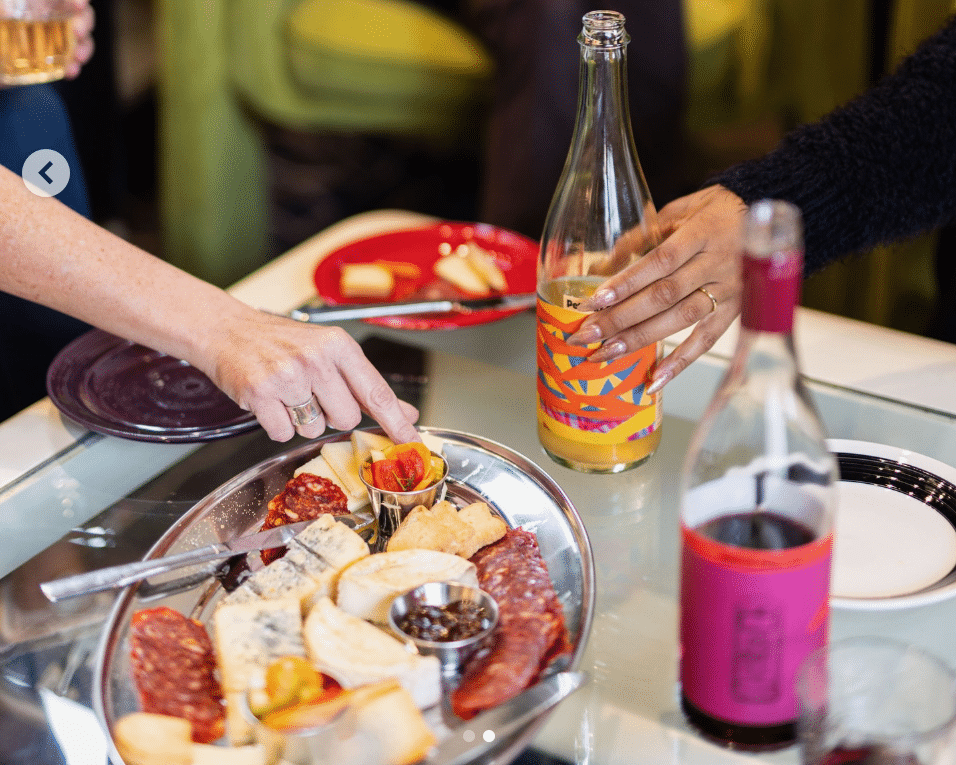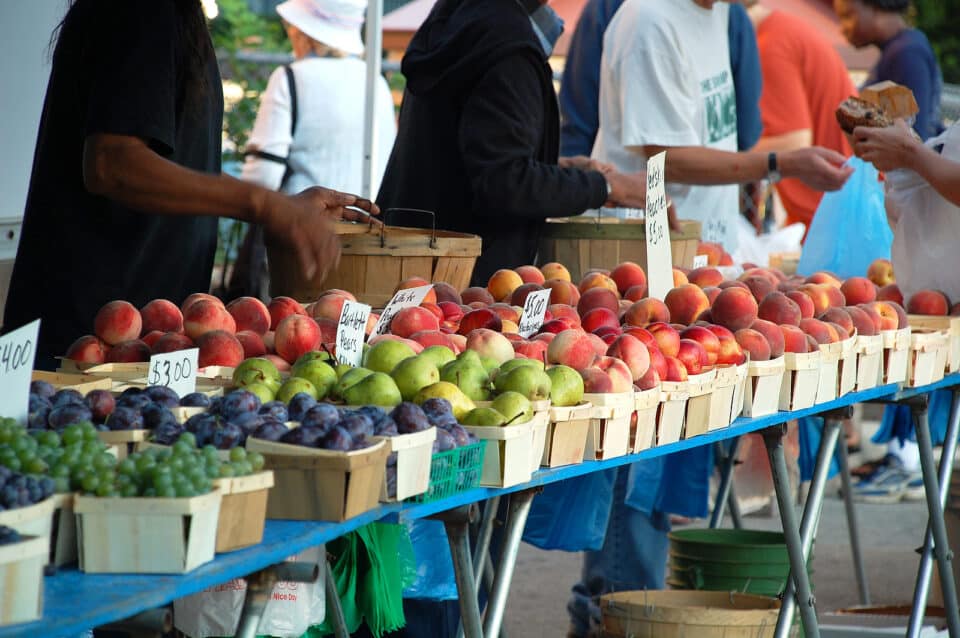When CARES CommuniTEA Cafe opened its doors on February 1, 2021, its menu featured all the regular cafe things: coffee and espresso, bagels and pastries, and salads and breakfast sandwiches. But its most powerful offerings went well beyond drinks and snacks: It became a gathering place for neighbors in Pittsburgh’s historically Black Hill District, and developed workforce development program for local youths ages 16-24.
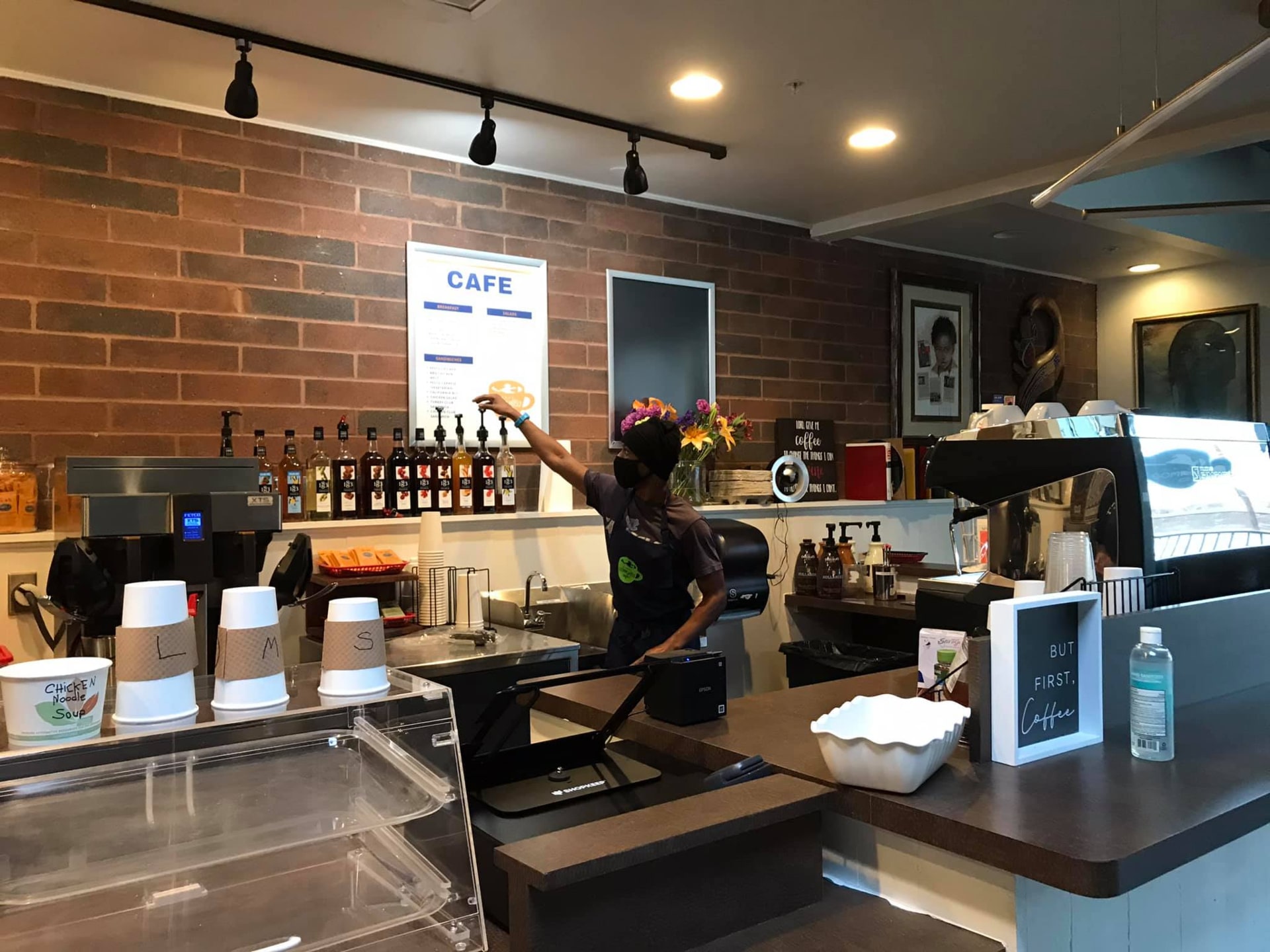
CARES CommuniTEA Cafe is part of the Center That Cares, a wrap-around support agency that serves youth with Pre-K to 12th grade after-school programming that includes academic support and college preparation for older students. It also provides rehousing, supportive services, jobs and financial planning for unhoused youth ages 18-24. The cafe is also part of the Avenues of Hope initiative, which “addresses Pittsburgh’s lack of community development and economic inclusion in African American communities utilizing a holistic, community-centered approach.”
“This cafe was really born out of the need in our community to have a coffee shop, somewhere to sit down and work and get coffee without leaving the community,” says Shinora Grayson-Johnson, Center that Cares’ COO. “It also is a place to give our youth some real-world experience.”
To understand how impactful both of these factors are, it’s important to reflect on the historical context of the Hill District.
From the 1920s to the 1950s, the Hill District was once a vibrant hub for Black arts and culture in Pittsburgh. It was home to numerous theaters and jazz clubs that drew national touring acts like Louis Armstrong and Duke Ellington, and was dubbed “the Crossroads of the World” by Harlem Renaissance poet Claude McKay. However, by the mid-1950s, many residential properties were deteriorating, and in 1956, over 8,000 residents (most of whom were Black) were displaced as the city government razed entire multiple blocks to make way for the construction of the Civic Arena, which was demolished in 2012. This urban planning decision cut the Lower Hill District off from surrounding neighborhoods, and the following decades marked a period of serious economic decline in the area (and, with the decline of the steel industry, across all of Pittsburgh). For more on the history of the Hill District, and its connection to the playwright August Wilson, see this story on the National Trust for Historic Preservation’s website.
The relevance of this history is that the area surrounding CARES CommuniTEA has long been a food and retail desert. The storefront where the cafe is was once a different coffee shop that opened and closed in a short period of time; that was around 10 years ago, and the space has been empty every since.
“We were at the point where we didn’t even have a grocery store in the community, but Salem’s, a Halal butcher shop, grill and grocery store, recently opened. It’s the first grocery store here in five years,” Grayson-Johnson explains. “There was no where in the Hill for people to sit down and have a meeting. We’ve been in a food desert and work desert.”
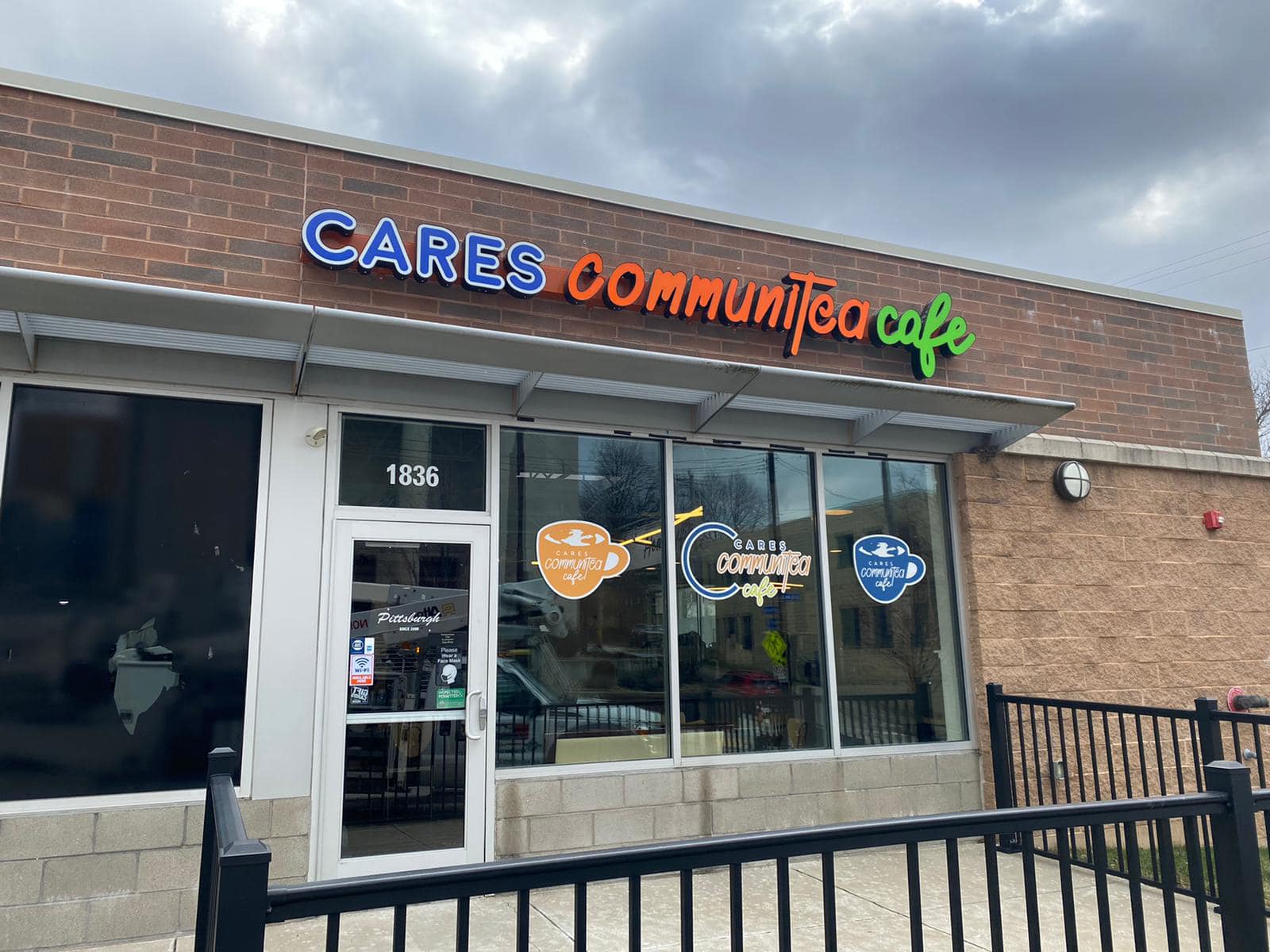
The social enterprise component of CARES CommuniTEA Cafe has a few components: it hires neighborhood teenagers to work after school and on weekends, providing them with training, ServSafe certification and responsibility.
“The goal is to give them hands on experience in the cafe so that when they go on interviews after they graduate, they already have tools to get them started,” Grayson-Johnson says. “We do a six-week training in the summers to cover things like expectations, what to wear to work and what to do in your down time.”
She also notes that it’s getting hard for young people to get jobs in fast food and retail because, as hourly rates have gone up, more adults are taking those jobs as primary or second jobs. While the cafe can’t always compete with corporate chains in terms of pay, the culture and management style at CARES CommuniTEA is something unique. If youth who work there show interest in other sides of the business, like social media marketing or product sourcing, they’re able to help and gain experience in those areas.
“We operate in love,” Grayson-Johnson says. “If you go work at a Wendy’s, there’s no patience, and dealing with youth takes patience. We work with our youth to make sure they have supportive mentors. I won’t just say ‘clean this,’ I’ll show you how to clean so you have that baseline for the future.”
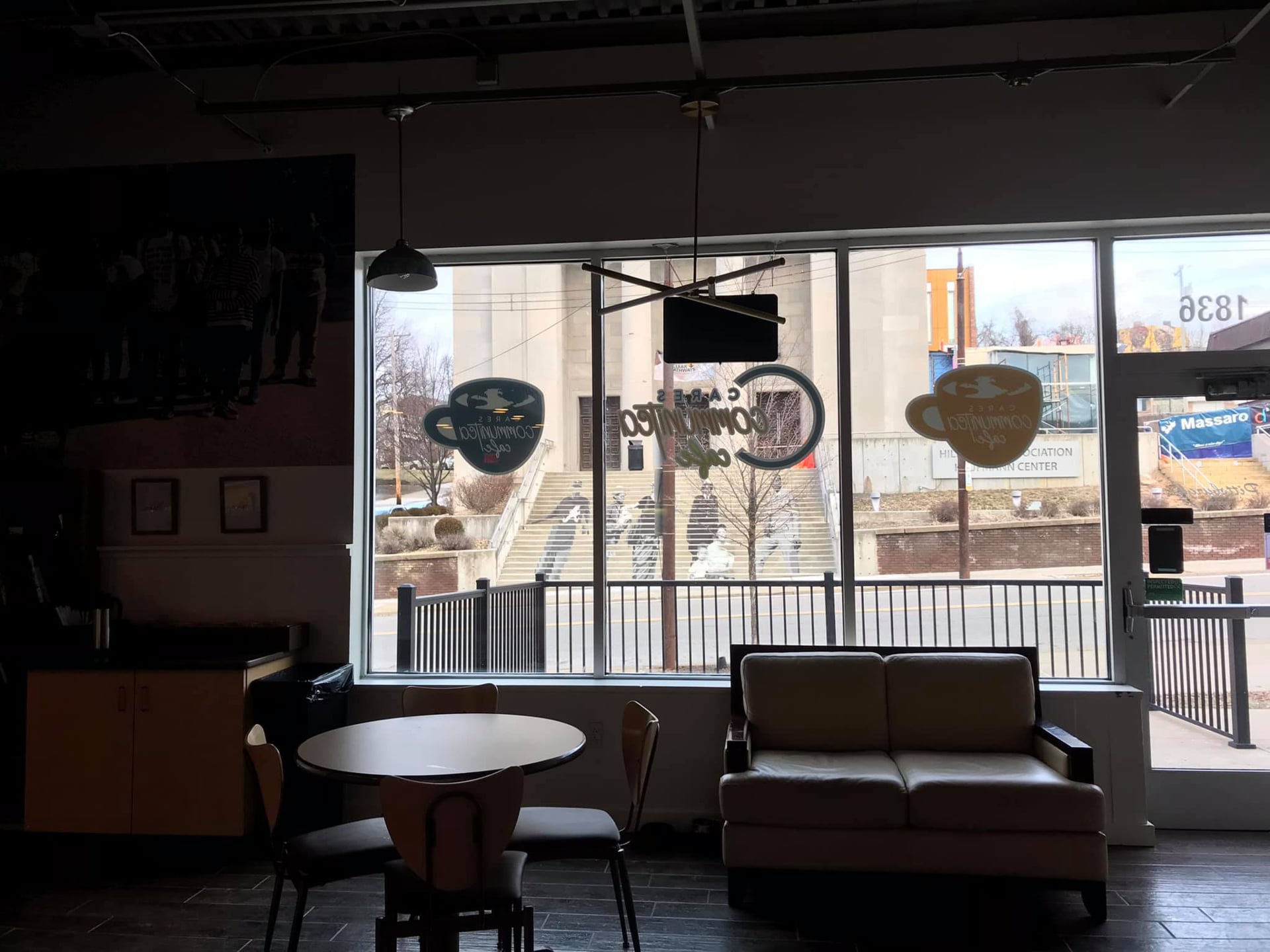
Grayson-Johnson remembers one employee who’d been with CARES in the afterschool program since the 6th grade. During the Covid-19 pandemic lockdown, she was living in the college dorms, and CARES employees went to pick her up and bring her back to the neighborhood. While she was living at home and attending school remotely, she was able to get technical training and certifications through CARES CommuniTEA, then worked part-time in the cafe, and still comes back to cover shifts once in awhile.
“That’s a success story,” says Grayson-Johnson.
The cafe is also a vibrant community hub, providing programming like tea parties, poetry readings, live jazz and open mic nights. There’s lots of comfy seating for meetings, hang out or remote work, and even a bookshelf with reading materials that guests are free to borrow.
“Everyone is family, and when you walk in the doors you feel the love,” Grayson-Johnson says.
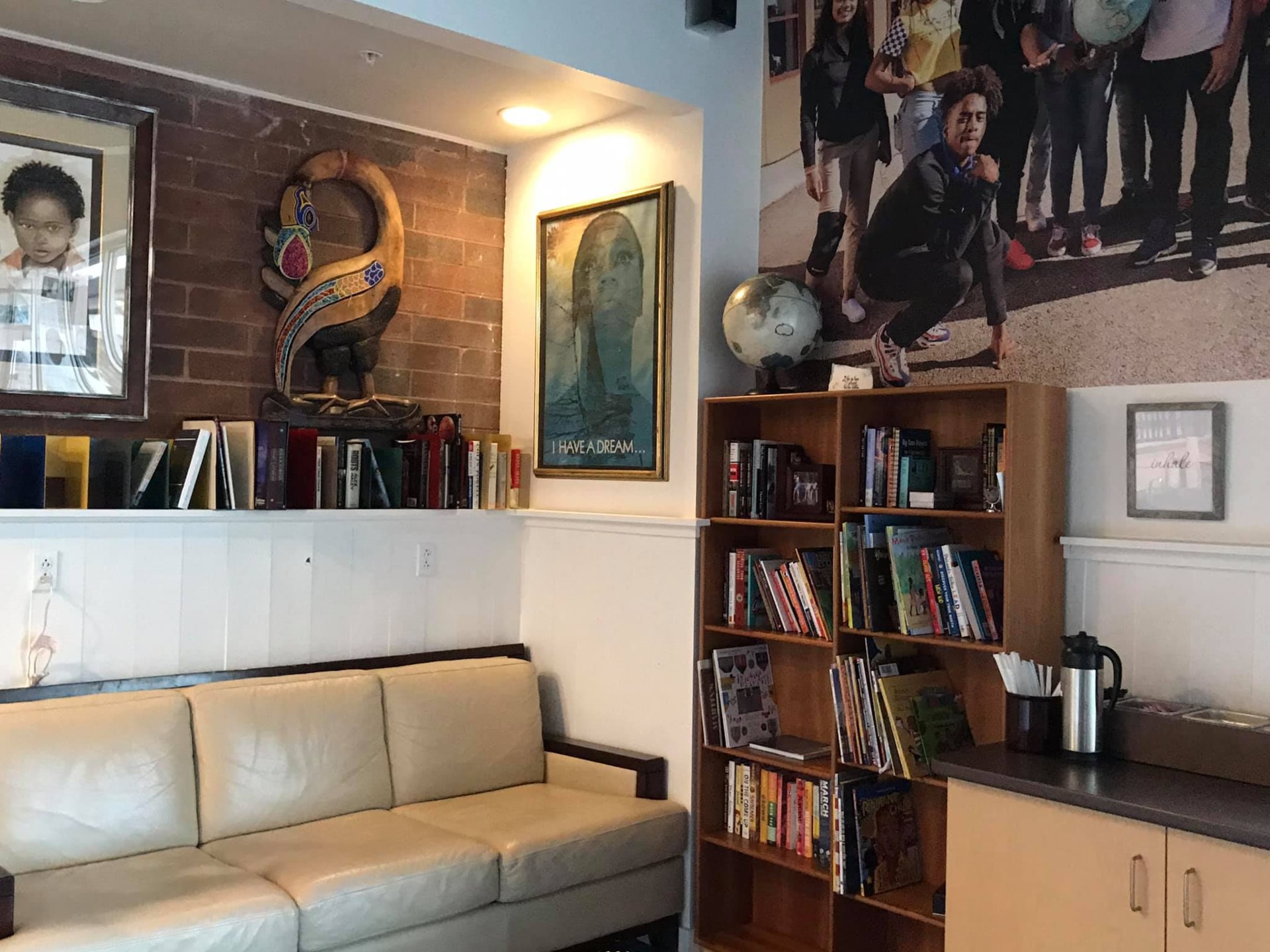
The cafe menu is packed with classics, like drip coffee, chai and matcha lattes, iced tea and croissants; where it stands out, especially with the lack of other retailers around, is with its breakfast and lunch food options. At breakfast, find yogurt with fresh fruit and granola and egg-and-cheese sandwiches; at lunch, there are plenty of vegetable-driven salads, panini and bean pies to choose from. As CARES CommuniTEA continues to grow, Grayson-Johnson and her colleagues are looking for even more ways to incorporate fresh, local produce.

“We actually have a healing garden as part of our after-school program where we grow fresh food,” she says. “Our goal is to develop an eco-system, to use those foods and work with local farmers to source ingredients for our salads, like a farm-to-table concept.”
Prices are intentionally kept lower than other coffee shops; a cup of regular coffee is just $1.50. Though this makes things financially trickier for the cafe, Grayson-Johnson says it’s crucial to keeping options accessible for the surrounding community. She is currently looking for funding to keep the prices competitive and to supplement the business the are currently doing.
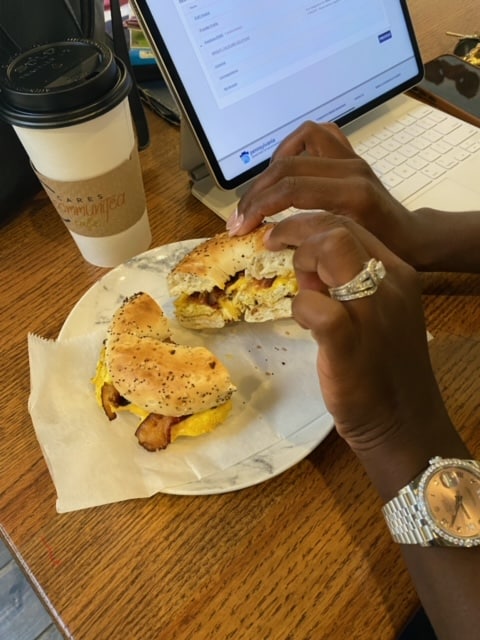
Now going into their fourth year open, Grayson-Johnson is hoping to fully stabilize after the challenges of operating during Covid, and the supply chain and food pricing issues that followed. She aims to learn from what works, and was hasn’t, at CARES CommuniTEA Cafe, and continue to position the space as a welcoming destination in the Hill District.
“Centre Avenue is a connecting street, and we want to be that space where people can come to connect,” she says, “a space where people can come and bring resources and congregate.”
To learn more about CARES CommuniTEA Cafe, or to place an online order, head to its website. For food specials, events and more, follow along on Instagram and Facebook.
Find CARES CommuniTEA Cafe at 1836 Centre Avenue in Pittsburgh; phone: (412) 223-3333.
